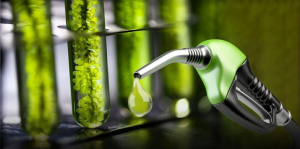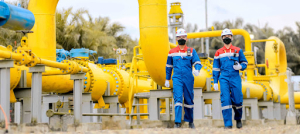Pertamina empowers 159 villages on clean energy, rural economy and food security
State energy company PT Pertamina is actively supporting of village-based energy and food self-sufficiency measures through the Independent Energy Village (DEB) Program.
As of 2024, Pertamina has built 159 DEBs throughout Indonesia, impacting 35,746 families. The program is expected to produce clean energy of 733,559 Wattpeak (Wp) per year and biogas and methane of 846,180 metric tons (MT) per year.
Fadjar Djoko Santoso, Pertamina Vice President for Corporate Communications, said that the DEB program optimizes clean energy sources that are abundant in rural areas such as solar, wind, microhydro, and biogas.
This program has managed to reduce carbon emissions by 729 thousand tons of CO2 equivalent per year, thus supporting the government's target to reduce emissions and achieve net zero emissions (NZE) by 2060.
"Indonesia has great renewable energy potential to support national energy self-sufficiency. The DEB program is the right medium to introduce sustainable clean energy to rural communities," Fadjar said on Monday, February 3, 2025.
This program also helps boost rural food security by increasing rice production to 15,762 tons per year, with an economic impact on villages recorded at Rp3.6 billion (US$221,000) per year.
"DEB is run by all Pertamina subholdings and subsidiaries so that its locations are spread from Aceh to Papua," Fadjar cited.
One of the DEB programs run by PT Pertamina Geothermal Energy through the PGE Kamojang Area is located in Legok Pulus Village, Sukakarya Village, Garut Regency. The village is equipped with a solar panel installation with a capacity of 8.72 kWp and a battery with a capacity of 10kWh. Through this infrastructure, the village community can save energy costs of up to Rp18 million per year while reducing carbon emissions by 11.4 tons of CO2 per year.
This program also supports members of the Mekarsari Women Farmers Group (KWT) through the operation of Water Pumps for Green Watering of cabbage, tomato and chili gardens.
Meanwhile, the Solar Power Plant (PLTS) contributes to the operation of clean water ultrafiltration equipment and has a significant impact in supporting the community's drinking water and irrigation needs.
Already have an account? Sign In
-
Start reading
Freemium
-
Monthly Subscription
30% OFF$26.03
$37.19/MonthCancel anytime
This offer is open to all new subscribers!
Subscribe now -
Yearly Subscription
33% OFF$228.13
$340.5/YearCancel anytime
This offer is open to all new subscribers!
Subscribe now






